From the Lampert Library
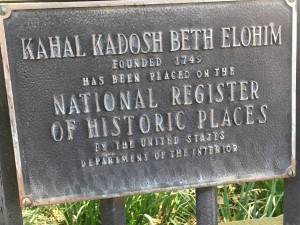 While the librarian is in Charleston, South Carolina attending the Association of Jewish Libraries Conference, enjoy the selection of new books on display and these random facts about the city and South Carolina.
While the librarian is in Charleston, South Carolina attending the Association of Jewish Libraries Conference, enjoy the selection of new books on display and these random facts about the city and South Carolina.
South Carolina’s 1669 charter gave “liberty of conscience to Jews, heathens and dissenters.” This encouraged the growth of a Jewish community.
The earliest record of a Jewish resident was in 1695. Sephardim from England and the Netherlands-descendants of Jews expelled from Spain and Portugal- were the first Jewish settlers.
In 1740-41, many Jews moved to Charleston from Georgia when Spain invaded. They feared a reinstitution of the Inquisition.
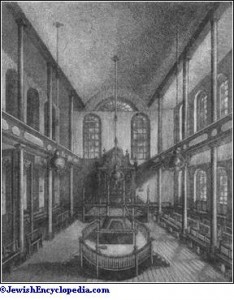 Jews could vote in South Carolina beginning in 1702. South Carolina was the first place in America to elect a Jew to public office. Francis Salvador, the first practicing Jew to serve in a legislative body in America, in 1776 was also the first Jewish casualty of the American Revolution.
Jews could vote in South Carolina beginning in 1702. South Carolina was the first place in America to elect a Jew to public office. Francis Salvador, the first practicing Jew to serve in a legislative body in America, in 1776 was also the first Jewish casualty of the American Revolution.
Charleston Jews sent a letter to George Washington congratulating him on his presidency.
Charleston was the birthplace of Reform Judaism in America when Kahal Kodesh Beth Elohim introduced some English in 1824.
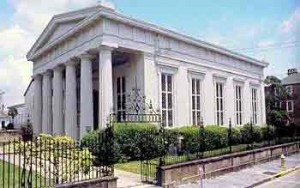 Until 1830, Charleston was the unofficial capital of Jewish America with the largest and most successful population of any city in the United States. After the Civil War, the Jewish community fell into decline. In fact, by 1902, with fewer than 2000 Jews, the population was smaller than in 1816.
Until 1830, Charleston was the unofficial capital of Jewish America with the largest and most successful population of any city in the United States. After the Civil War, the Jewish community fell into decline. In fact, by 1902, with fewer than 2000 Jews, the population was smaller than in 1816.
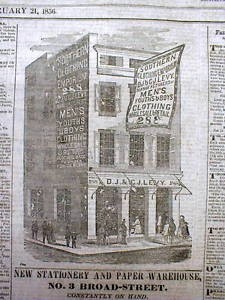 The second religious school in the US was established in 1838 using lesson plans developed by Rebecca Gratz of Philadelphia who began the first synagogue religious school.
The second religious school in the US was established in 1838 using lesson plans developed by Rebecca Gratz of Philadelphia who began the first synagogue religious school.
The Addlestone Library at the College of Charleston is named after a Jewish benefactor and houses the Jewish Heritage Collection.
Kahal Kodesh Beth Elohim is the second oldest synagogue in the US and the oldest in continuous use.
One of the most famous producers of indigo, South Carolina’s second staple crop was Moses Lindo.
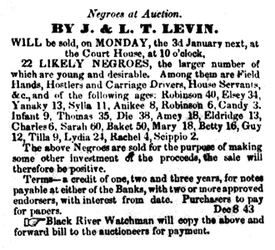 Jews were thoroughly integrated into the culture of Charleston and the South. Jewish auctioneers sold slaves along with other goods.
Jews were thoroughly integrated into the culture of Charleston and the South. Jewish auctioneers sold slaves along with other goods.
About 83% of Jewish households owned at least one slave, mostly used as house servants. A few smaller plantations were owned by Jews. However, the majority of Jews were businessmen.
- Is It Passover Yet? - Thu, Apr 18, 2024
- MESH Report April 9, 2024 - Thu, Apr 11, 2024
- Guess Who? - Wed, Mar 13, 2024

As always, fascinating details from Aileen about the site of her latest adventure. Thank you again, Aileen!